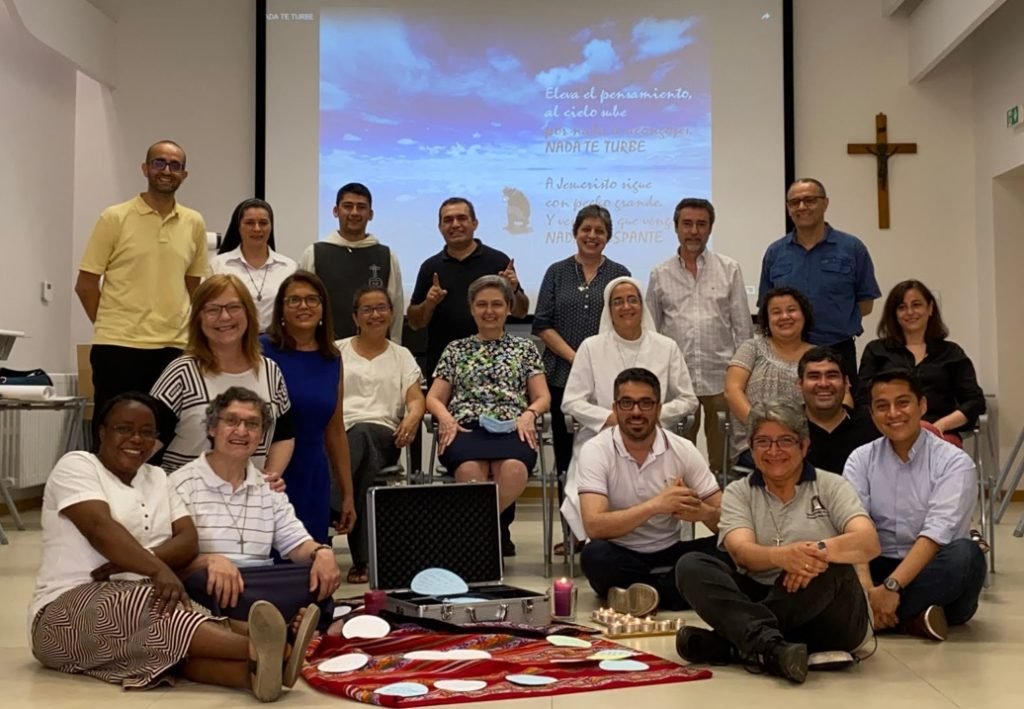Thanks to my Congregation of Capuchin Tertiary Sisters, and especially to Sr. Ana Tulia López, Superior General and her Council, to Sr. Yolanda de María Arriaga, Provincial Superior and her Council of my Province “Our Lady of Guadalupe ”and to the Latin American Conference of Religious (CLAR), who provided me with a scholarship, it has been possible that, five months ago, I could begin a path of knowledge, accompaniment and painful discovery of a reality of death and resurrection, that our Church is living at present. Despite the COVID-19 pandemic, our group has been the first international and multicultural group, most of its members Spanish speaking people that, at the Pontifical Gregorian University, could complete the Diploma in Minors safeguarding, attending classes physically, during the months from February to June 2021.
It is not easy to acknowledge one of the wounds that the Church must take care of, beginning a path of conversion and reparation before the situations of abuse. It is illogical to pretend to make God speaking since forgiveness, as a characteristic of a compassionate God or that divine justice act on the sinful deeds of humanity. These ones are responses, often erroneous, given without knowing how to care for victims of sexual abuse or, in other words, without engaging themselves in the restorative healing task and assuming the humiliation, preferring to choose a defensive attitude for the good name or status of the Church.
It is the necessary to make visible the victims remained unattended and that is why it is requested their intervention and to accompany them through an empathic treatment that will cure them humanely and emotionally. Those who have courageously assumed their responsibility had to learn how to cope with the case processes and have offered the means of due treatment and compensation to the affected persons.
It is an obligation of the Church to care for the victims through the recognition, closeness and a good fraternal treatment approaching them like the God of Israel who listens to the cry of his people (Ex 3,7), creating spaces for dialogue and encounter, bending over to know their suffering and pain, attending to the needs of the brothers affected by the events and offering them the opportunity to express their feelings, emotions and unshared silences. That is the occasion to re-establish the faithful that are part of a community, giving them the possibility to be solidary through the reception that offers the strength to recover. This is a path of prevention and safeguarding in an ecclesial communion, creating support networks to work as a team with institutions, professionals and people with whom, in this course, we have woven fraternal ties and created a support network, because we have acknowledged that we also are vulnerable and we need to be supported and accompanied. This will be the task to carry on through the different commissions formed in the dioceses, parishes, religious congregations, CLAR and various International Conferences of Religious working for the prevention culture.

The healing process involves to accompany the victims without haste and without looking for immediate results. Rather, it consists in caring with a heart of mercy, walking alongside with those who carry difficult situations, taking each one his own responsibility towards their reality; it consists in listening to the cry, bending over and looking at them like God looks at his people, listening, approaching, overcoming prejudices, risking, being creative in inventing gestures of tenderness so that a gradual and patient process may take place and it may involve healthy symmetrical relationships and also inclusive understanding to welcome even the aggressors. In the community or the Church, must be offered a space for attention, openness and welcoming attentive listening; all that should be provided in an atmosphere of freedom and respect for each situation, always gazing like God, compassionate and moved by the caused wound, opening new possibilities to comprehend the experienced situation and to start a healing path, beginning with the “verbal testimony” presented as part of a salvation history, perceiving God of life’s acting and keeping in our memory that God’ s action, revealed in the pain of the past is transcended and gives meaning to the present.
The Church in her evangelizing task, walks alongside as a mother with its children and offers itself as an intermediary: it reveals the salvation through the events of a personal story manifesting love in the midst of suffering and offering a path of life and hope. I echo the words of Sister Nathalie Becquart, whom, in February 2021, Pope Francis appointed as one of the two Undersecretaries of the Synod of Bishops; affirming that “All of us, as baptized, are called to fight against clericalism which has been identified as the root of any abuse that is always the consequence of an abuse of power”, she remarked that it is necessary to promote discernment and to seek co-responsibility and subsidiarity, since a new style of governance, in the Church and that is the path of synodality involving the active participation of all the members in the shared mission, seeking consensus together since a free leadership, allowing the community to participate in the decision-making avoiding being the protagonists or a selfish narcissism, overcoming great institutional temptations of concealment, impunity, silence and deception … building again he coherent articulation (leaving dualism) mercy-justice, synodality-collegiality, vulnerability-precariousness.
The culture of prevention begins in the ecclesial life, in all its structures, dimensions and representativeness of all the members of the people of God; the Church mission, especially with regard with the most vulnerable («minors»), is to announce the Good News to all creation through an oblative service without domination.
At the end of this time of grace we return to our communities, parishes, dioceses with the hope of serving and helping the most vulnerable who demand love, sowing a culture of good treatment.
Hna. Priscila Brenes Granados, Tc
https://www.dropbox.com/s/ckmetktzoy9xib5/video%20FINAL%20Diploma%20CCP%202021.mp4?dl=0




